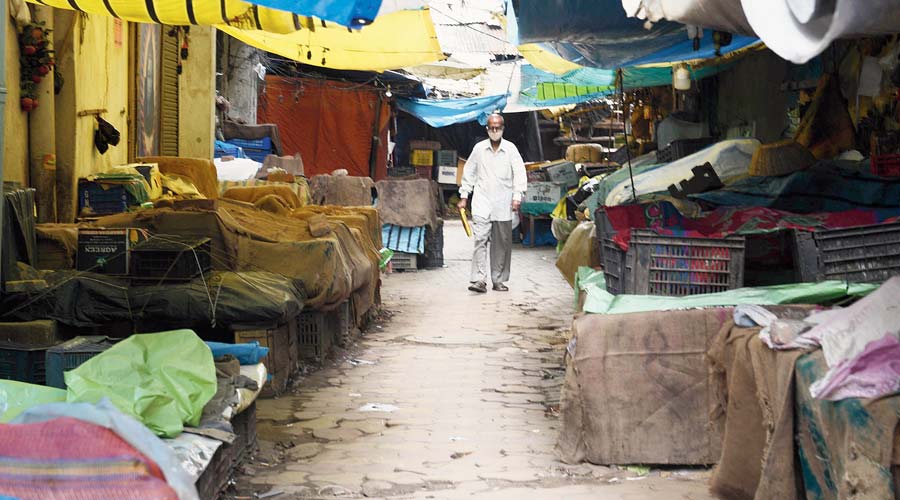Police on Tuesday inspected some markets in the city to find out whether traders were hoarding vegetables, the move prompted by a sharp rise in retail prices.
The markets that witnessed surprise visits included Beleghata Sarkar Bazar and Rashmoni Bazar, also in Beleghata.
Bidisha Kalita, deputy commissioner of the enforcement branch of Kolkata police, said such visits would continue for a few days.
“The surprise visits are an ongoing process. The price rise happens because of a combination of factors. Our surprise visits are meant to ensure that there is no unnecessary price rise,” said Kalita.
Tomatoes, brinjals and ridge gourds sold at Rs 100 a kg at the Kasba market. At the Sovabazar market, tomatoes and brinjals sold at Rs 80 a kg.
“Even Rs 80 a kg is very high. I had purchased tomatoes for Rs 50 a kg before Durga Puja,” said a resident of Sovabazar.
Onions sold at Rs 50 a kg at the Sovabazar market. A week ago, the price varied between Rs 70 and Rs 80 a kg.
“But the current price is still high. Around this time of the year, onions sell for Rs 30 or Rs 40 a kg,” said the Sovabazar resident.
In various other markets in the city, potatoes (the Chandramukhi variety) sold at Rs 22 a kg and green chillies at Rs 100 a kg.
“It is becoming increasingly difficult for common people to manage households as the prices of vegetables, edible oil and cooking gas are skyrocketing,” said Jayanti Dhar, a Kasba resident.
Rabindranath Koley, a member of the state government’s task force on essential commodities, said the prices would start coming down around Kali Puja and Diwali. “Vegetable harvest has begun. Once the fresh vegetables arrive at the markets, the prices will drop,” Koley said.
The two major reasons responsible for the sharp price rise, Koley said, are the increase in fuel prices and the recent spell of heavy rain. The spike in fuel prices pushed up the transportation cost and the rain destroyed crops in many districts.
“Most of the green vegetables are grown in places that received heavy rainfall in the last 10 days. The crops in the fields got destroyed because of the rain,” he said.
